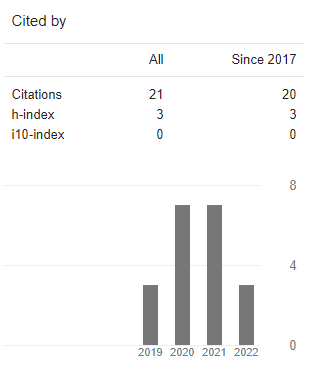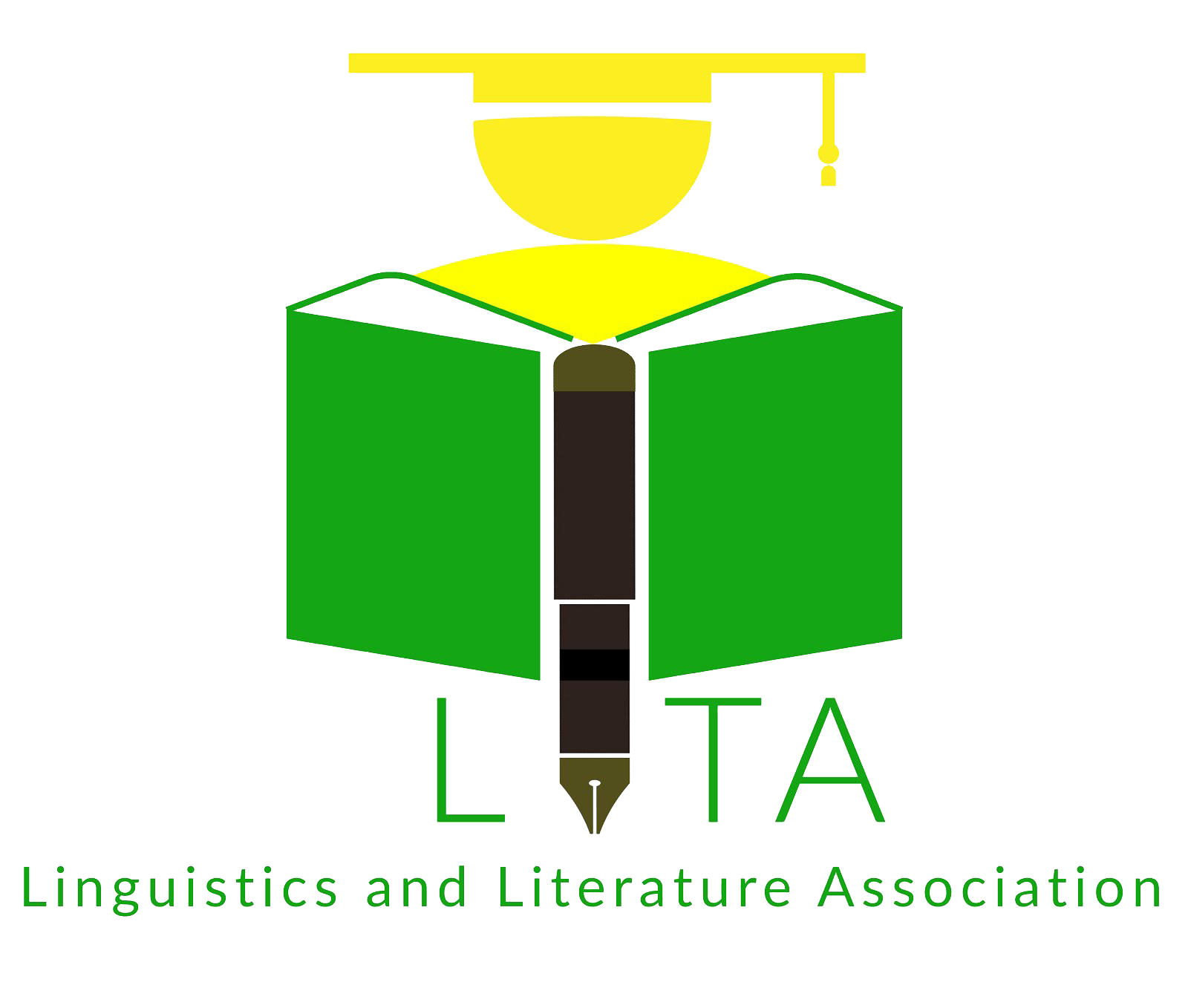Constructing a Children-Friendly Language within In-Family Interaction Context
DOI:
https://doi.org/10.21776/ub.alphabet.2019.02.02.02Keywords:
face, character language, politeness, camaraderie, in-family interaction, children-friendly languageAbstract
This paper proposes a construction of a children-friendly language within in-family interaction context. The term children-friendly here refers to the building of their language with character, i.e. a language elaboration by involving language use as a matter of probabilities. The elaboration of the children-friendly language is seen from the aspects of power and solidarity from the parents to the children and considers politeness for superiors (distant language) and camaraderie for close people (close language). The close Indonesian language and the distant Indonesian language in this construction employ different topics and particularly-elaborated utterances which are formality-based, directness-based, and meaning-based. Formality-based utterances are elaborated into informal and formal utterances, directness-based into direct and indirect utterances, and meaning-based utterances into literal and non-literal utterances. Different topics in this children-friendly language construction are also thoroughy differentiated into safe and common topics and personal and private topics. Examples of safe and common topics are family, work, and sports. Examples of personal and private topics are religion, status of marriage, and salary. Safe and common topics are not dangerous, and personal and private topics are touchy and dangerous. The former topics are involved in distant language, while the latter topics are elaborated for close language. The proportion of the close Indonesian language and the distant Indonesian language to be introduced to and learned by children is carefully set and given accounts, i.e. bigger portion on close language than that on distant language. Close language utterances as well as the topics are formulated in such a way that children should get verbally close to their parents, siblings, relatives, and close communities. Meanwhile, distant language utterances as well as the topics are also formulated in such a way that children should respect superiors or even strangers they meet for the first time. This paper advocates the theories on face, politeness strategies, respect and solidarity, and politeness and camaraderie, with elaborate types of hearer in the aspects of power and solidarity. This paper is empirically trying to encourage early stage of politeness for children, hence preparing them to have a basis for developing their character language and for their early learning to create harmony in their interpersonal and social encounters.References
Adams, Tony E., Jones, Stacy Holman, Ellis, Carolyn. (2015). Autoethnography: Understanding Qualitative Research. New York: Oxford University Press. ISBN 978-0-19-997209-8.
Brown, P. & Levinson, S. C. (1987). Politeness: Some Universals in Language Usage. New York: Cambridge University Press.
Cambridge. (2018). Cambridge Dictionary, https://dictionary.cambridge.org/dictionary/english/direct
Ellis, C. (2004). The ethnographic I: A methodological novel about auto ethnography. Walnut Creek: Alta Mira Press.
Goffman, E. (1959). The Presentation of Self in Everyday Life. New York: Anchor Books.
Jumanto, J. (2006). Komunikasi Fatis di Kalangan Penutur Jati Bahasa Inggris (Unpublished PhD Dissertation) . University of Indonesia. Jakarta: Universitas Indonesia .
Jumanto, J. (2011). Pragmatics and Character Language Building. The 58th TEFLIN International Conference on Language Teaching and Character Building. Semarang, Indonesia, pp. 329-340.
Jumanto, J. (2012). Teaching a Character BIPA (Indonesian for Non-Native Speakers). The 2012 KIPBIPA VIII-ASILE International Conference. Salatiga, Indonesia, pp. 1-20.
Jumanto, J. (2014a). Politeness and Camaraderie: How Types of Form Matter in Indonesian Context. Proceeding: The Second International Conference on Education and Language (2nd ICEL). Bandar Lampung University (UBL), Indonesia. http://artikel.ubl.ac.id/, ISSN: 2303-1417, 2014, pp. II-335-350.
Jumanto, J. (2014b). Towards a Character Language: A Probability in Language Use. Open Journal of Modern Linguistics, 4, http://dx.doi.org/10.4236/ojml.2014.42027. ISSN: 2164-2818, pp. 333-349.
Jumanto Jumanto. (2016a). "Digital Humanities and Politeness: A Proposed Guideline for Text Interactions in the Virtual World," in Journal of Global Research in Education and Social Science, 5(3). ISSN-2454-1834, 2016, pp. 157-166.
Jumanto, J. (2016b). Distant Language, Close, Language, and Impoliteness in the Indonesian Context. Journal of Global Research in Education and Social Science, 8(3), 131-137.
Jumanto, J. (2017a). Educating the Indonesian Language: A Proposed Verbal Social Project for the National Harmony. Advances in Social Sciences, Education and Humanities Research (ASSEHR)-YICEMAP-17, Vol. 66, pp. 215-221. doi:10.2991/yicemap-17.2017.36.
Jumanto, J. (2017b). “A Character Language for the World’s Harmony? A Philosophical Review†– Journal of Psychology and Psychotherapy, 7:4 (2017), ISSN: 2161-0487, DOI: 10.4172/2161-0487.1000319. URL: https://www.omicsonline.org/open-access/a-character-language-for-the-worlds-citizens-a-philosophical-review-2161-0487-1000319.pdf
Jumanto, J. (2018). How to control hate speech and hoaxes: character language for character citizens, in Retnowati, E, Ghufron, A, Marzuki, Kasiyan, Pierawan, A.C, Ashadi, (eds), Character Education for 21st Century Global Citizens. London: Routledge, pp. 13-20.
Leech, G. (1983). Principles of Pragmatics. New York: Longman.
Maréchal, G. (2010). Autoethnography. In Albert J. Mills, Gabrielle Durepos & Elden Wiebe (Eds.), Encyclopedia of case study research (Vol. 2, pp. 43-45). Thousand Oaks, CA: Sage Publications.
Merriam-Webster. (2018). Merriam-Webster, Since 1928, https://www.merriam-webster.com/thesaurus
Oxford. (2018). English, Oxford Living Dictionary, https://en.oxforddictionaries.com/definition
Renkema, J. (1993). Discourse Studies: An Introductory Textbook. Amsterdam: John Benjamins.
Sifianou, M. (2013). The Impact of Globalisation on Politeness and Impoliteness. Journal of Pragmatics, 55, 2013, 86-102.
White, A. (2017). Truth-Telling and Ethics Remain the Keys to Open Democracy. Ethics in the News. London, United Kingdom: the Ethical Journalism Network.




















